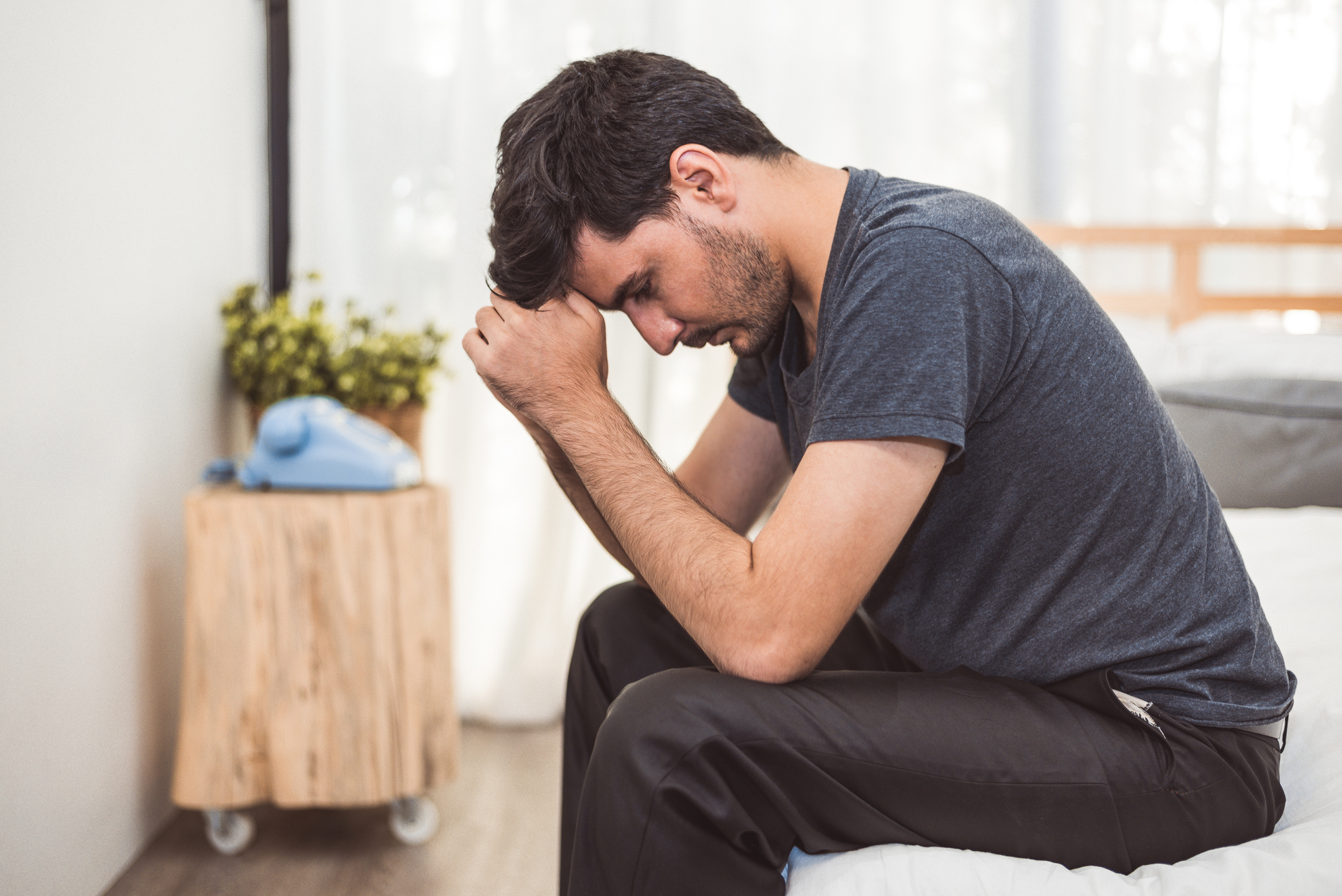Blog
Post-pandemic stress and anxiety: Here’s why it’s happening – and what to do

Snap lockdowns. Business closures. Family separations. Repeated cancellations.
With the intense peaks and troughs of recent years, it’s no wonder anxiety levels have risen – even among those who consider themselves mentally well.
And though we’re finally tasting the normalcy we so craved over the last two years, re-entering regular life has been more challenging than many people anticipated.
So this month, Positive Psychology’s co-founder, Peter Kyriakoulis, explains what post-pandemic anxiety and stress is and how to combat it, so we can all move towards feeling ourselves again.
A life inside may still feel safer
Lockdown made our lives smaller. With no social events cramming our calendars, and no need to stress over what to wear or who to talk to, our social interactions were limited. (The introverted among us might even have welcomed the change.)
On top of that, there were no commutes holding us hostage in our car for hours. And no back-to-back commitments that ran us into the ground by the end of the week. That meant many of us found ourselves with more free time.
For those of us who didn’t face significant financial, health and family stressors (home schooling, anyone?), problems were reduced and confined to our own little bubble.
As humans adaptable by nature, we adjusted to this rudimentary life better than expected. However, this also meant that exiting our newfound comfort-zone was harder than expected – with anxiety levels failing to dissipate.
On a biological level, anxiety is a survival response. It’s a signal to protect ourselves from perceived danger. And in the past couple of years danger has been waiting right outside our front door. We’ve learnt to see those outside our homes – including family members – as potential threats to our health and the health of those we love. So it’s very normal some of us are holding on to this fear as we re-enter the world.
How can we resume our routines – and feel good about it?
There are things we can all do to make regular life feel more manageable and enjoyable. They include:
- Pacing ourselves: Try creating more space for downtime and reflection. It’s a good idea to keep a diary and regularly block out time to do nothing.
- Checking in with ourselves: This may be writing down how we feel each day or practising meditation to notice our thoughts.
- Doing things in moderation: It’s in our best interest to avoid overworking, over socialising or even over relaxing if we notice that it increases our stress and anxiety.
- Finding a balance of everything that’s important to us: This can be hard with the demands of life, but if we keep checking in with ourselves, we can learn to spot imbalances sooner.
- Understand our values and let them guide our day-to-day lives: It’s important to refocus on what’s important to us when we feel overwhelmed.
- Adopt a healthy lifestyle that helps us thrive: This might be eating nutritious food or making time to move our bodies in a way that feels good. (Ideally both.)
- Learn to live with uncertainty: Sadly, life will always throw us all curveballs. The key to managing them is learning to tolerate the uncertainty they bring. It’s a useful strategy for managing this time of hesitancy and re-adjustment as well.
How to ease ourselves back into our social lives
We can all expect to get our normal social stamina back in time. However, it may be a slow process.
For a long time our social lives were limited to talking to family through a screen while tucked up in bed. Or catching up with just one friend while we walked laps of our local park.
So re-entering the busy workplace and attending social gatherings has come as quite a shock for many. And that’s okay. It’s important that we practise patience and work to undo our expectations of ourselves.
How? By eliminating our ‘shoulds’.
So, instead of saying ‘I should go to that party…’ even though we don’t feel up to it, we could say, ‘It would be nice to go. But if I don’t, it won’t be the end of the world.’
It’s good to base social outings on experiences that bring us joy and support our wellbeing, ideally around people we feel safe and connected with. This will ensure we leave feeling satisfied – so we’ll be more likely to do it again!
Look back to look forward
We’ve all been through a lot. And as much as we want to forget the past two years, we also need to process our feelings so we can move on and feel our best.
This might look like acknowledging the hard times, but also shining a light on the good times – no matter how small they may seem in the scheme of things.
It’s also a good time to re-centre ourselves. This might be revisiting our short and long-term goals, reconnecting with friends and recommitting to positive and value-based life changes.
If we give it time and practise patience, we can, eventually, find our way back to ourselves.
If you or someone you know is experiencing stress and anxiety, talking it through with a professional can be helpful. You can make a time to speak to one of our team members by calling 1300 995 636. Or email us at [email protected].
